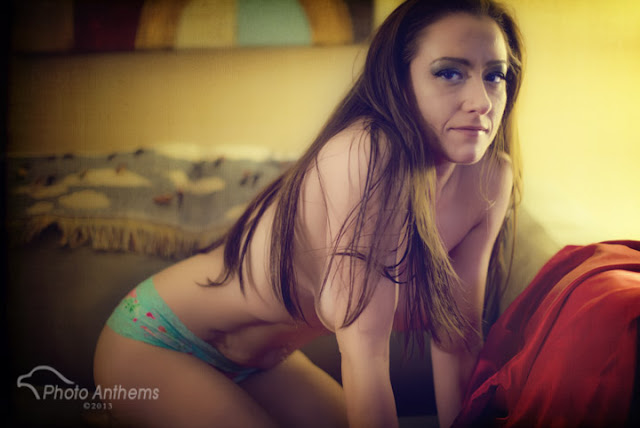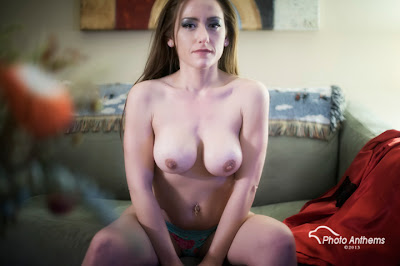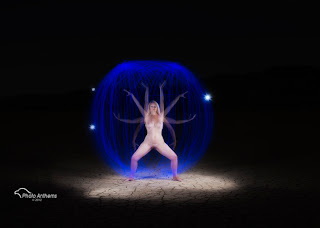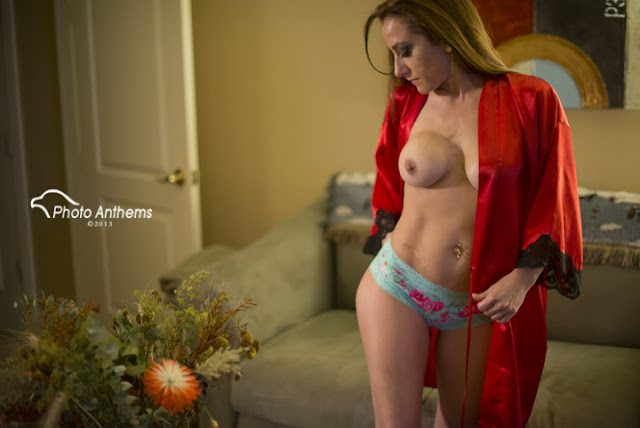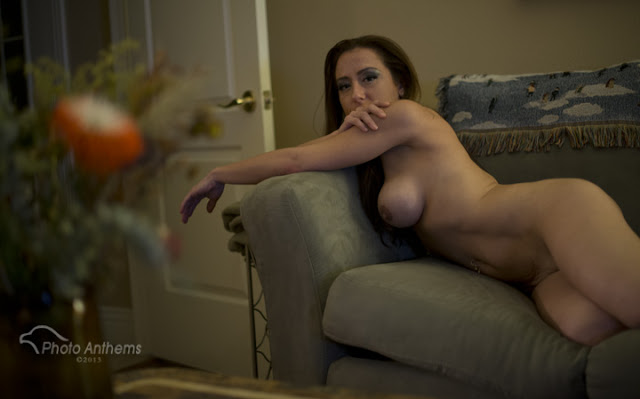 |
| Art Model, Viki Vegas |
“It is an illusion that photos are made with the camera… they are made with the eye, heart, and head.”
-Henri Cartier-Bresson
Let me start of with this, there is no such thing as a Camera for Beginners. There is only ever the Camera that you NEED. That's what you go on. But for the sake of this topic, I'll buy-in to the notion of a beginner level camera. That being said, I'll concede the concept of Entry-Level Cameras. I know... am I quibbling over semantics: beginner vs. entry? Well, hell yeah. Entry level describes the camera, not the consumer. It is usually a base-model thrown in to get attention for the people who just want a decent picture. Okay, maybe that is what a beginner needs.
Nah, screw that! I do not concede and here's why:
You may be new to photography, that's okay. And it doesn't mean Entry-Level is for you! I've been teaching photo for years. The number one question I get is, "What kind of camera should I buy?" My answer is always the same. You get the camera that you need! Buy what fits the reason you want to take pics and also fits within the constraints of your budget. There has not been a single time in all these years that I have recommended an Entry-Level camera to someone. NOT ONE TIME! I do need to qualify that a bit in that I've been asked to recommend one Entry-Level system over another when those were the only options. That's the only time.
Here's the deal. If money is not an obstacle and you are not concerned with practicality, there's a good chance Leica will come up in the conversation. Leica cameras are the opposite of Entry-Level. But you can start with them if you can swing that price point. I've sold them to first-time users who wanted to have a camera that not only took pics, but also made a statement. However, being more reasonable, if you ask me what you should get, the first thing I'm going to ask in reply is, "What do you want to take pictures of?" And that is where it begins.
 |
| Art Model, Viki Vegas |
In all likelihood, it's going to start with lens choices. Say for instance you tell me you love bird watching and it just so happens that you are traveling to Costa Rica. Does camera come into play? Not at first. You have a lens requirement. You likely need super telephoto capabilities. The camera might come into consideration because of WHERE you are going. Entry-Level cameras aren't traditionally made to be durable. The are generally plastic with no weather sealing. If you are traveling to Costa Rica, you may want to pay attention to the humidity and the probability of heavy rains. The lens won't mean a thing if you can't keep moisture out of your camera. You need something that can keep the electronics inside dry.
If you are a grandpa wanting to take pics of the babies eating up the living room carpet, then your needs are not that demanding. An Entry-Level system isn't too complicated and there is not a need for anything specific. Chances are, the camera will sit on a shelf for most of it's life as the cell phone proves to be more convenient. You don't really love photography for the sake of photography. You just like good pics every once in a while. You're not trying to learn something new, grow and develop lighting skills... you just want to fill the picture album like your Nana did for you as an ankle-biter. In this case, an entry-level kit, (camera and the lens it comes with) may not be a bad option.
There are a lot of used systems out there if budget is an issue. You can still get a good camera and lens if you're not sure if you'll stick with photography long enough to make it worth a brand new camera investment. Buying used gear is an excellent option. Renting is another possibility, either from your local camera shop or from online businesses like BorrowLenses.com or LensRentals.com. If you are torn about whether to drop some serious cash on a new system, rent the camera system before you buy it. See how you like it. Either way... buy new, buy used, or rent... you need to be aware of your primary considerations.
 |
| Art Model, Viki Vegas |
“The camera is an instrument that teaches people how to see without a camera.”
– Dorothea Lange
Think about the Lens first.
Lens choices address the needs of photography faster than most those of the camera, (unless video are the primary goal). The lens is first described by it's focal length and those usually come in these categories: wide-angle, normal, telephoto, and super telephoto. You can throw in Macro, tilt-shift, and ultra wide-angle, as well if that's that's what you need. However, the first 3 mentioned focal length perspectives are going to cover about 90% of shooter needs.
I deleted 4 paragraphs that go into describing lenses and things you need to consider. But that's making this post too long. Instead, check out my previous post detailing much more material on that matter here: => "Getting into Photo, Part II : The Lens".
 |
| Art Model, Viki Vegas |
And then there are camera considerations.
First consideration that everyone looks at is megapixels. But in all honesty, it really doesn't matter! Most digital cameras now come with at least 24 megapixels. For 90% of you, it's more than adequate. But depending on what you want to do, maybe more is necessary. The more important the detail, the greater the need for a higher MP camera sensor, but 24 is damn good. Full disclosure... I am a megapixel nut. There. I said it.
Durability is also a factor. Will your camera be subjected to rain, dust, and high/low temperatures? Can you reasonably expect it to get banged around a little bit? I'm not talking about being dropped. That sucks for any camera. No matter how careful you are, if you're going into harsh environments, the camera is going to take a beating. I'm very careful with my gear. That didn't mean squat when some rednecks in a big white Ford pick-up started doing donuts and belching exhaust as I was doing a photoshoot in a dry lake bed. I was shooting with 3 studio lights (on battery packs), softboxes, and at the time, I didn't see a need to shut my camera case with all my gear in it before those bastiches came flying in with their monster truck. And then they took off. Dusty gear and dusty models. At the end of the day, I was just glad they didn't run over anyone. The point is, your camera needs to be able to stand up to unpredictable situations, accidents, and unforeseeable circumstances.
Size Matters! This is what I've found. The bigger the camera, the less you shoot with it. Chances are, if you're not making money doing this, you'll keep that big camera on the shelf as something nice to look at, if you start out with a large, heavy system. You'll opt to using your cell phone more times than you would think, especially if you have a really nice phone. For damn, sure look at mirrorless cameras. No need to go DSLR and lose out on all those advantages. Pretty much all camera manufacturers, except for Pentax are leaving the DSLR in the dust. It had a beautiful run, but now it's watch has ended.
 |
| Art Model, Viki Vegas |
Other than cameras and lenses, consider these other accessories. Tripod! Just friggin' get one. Not a cheap flimsy one, otherwise what's the point! Get a cable release to actuate the camera without you having to push the button. Have a comfortable neck-strap. Don't get sold on anything gaudy, I mean... come on. All you're trying to do is take the pressure off your neck. Invest in a good, convenient bag. Shoulder bag, backpack, or sling bag... depending on how much gear you'll have with you. And that doesn't just mean camera stuff. Gonna be out all day? Pack a lunch. Bring water. Have some drybags in case it rains. Purchase extra batteries and storage media, probably more than you think you'll need.
Check out more from my previous post about cameras here: => "Getting into Photo, Part 1: The Camera"
So yeah... think about these things when you're ready to get a camera system. Personally, I'm still a Sony guy. And I still like Fujifilm cameras. If you can spend on a decent system, a Sony a6500 with your choice lens selection, will likely fill all your needs. A Fujifilm X-T2 or newer will likely do the same. I had a Fujifilm XE-2 and I can't speak enough how amazing that camera is. It was repeatedly submerged in the Pacific on my back, cuz I almost drowned, and the camera came back after sitting in some rice for a week. Amazing pics with that thing.
Study up. You have no shortage of options.
 |
| Art Model, Viki Vegas |
